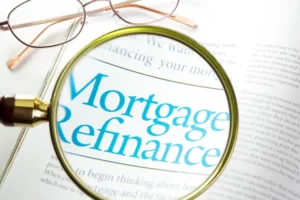All across Canada condominium developments are becoming immensely popular. In the past it was primarily an idea for the retired or “empty nesters”. This to a large extent is still true and largely contributes to the boom in condo developments due to shifting demographics. However increasingly condos are becoming popular for all age groups and especially first time homebuyers. If you want to own a home but don’t want the demands of day-to-day maintenance, or if you want your home located in a downtown location then buying a condo may make sense for you.
We must point out that a condominium is a legal description, not a particular type of building. Condos can include the following; high rise apartment style, townhouses (own separate outside entry), or detached homes. In a nutshell how it works is that you own your individual unit and you share in ownership of all the common areas such as the parking garage, games rooms, pools, utility rooms, roof, lobbies, and hallways. Consequently, you pay your own mortgage payment, property taxes, and utilities, for your unit, and you pay a share of all of the costs for the common areas. This charge is called your condo fee.
The Common areas are owned by the condo corporation (called a strata corporation in British Columbia). The corporation is indeed incorporated and operates like any business. There is a duly elected board of directors, and a set of condo by-laws. The board meets regularly to make decisions regarding by-laws, or violations thereof. They also discuss any future major maintenance projects, and most importantly are charged with the responsibility of keeping the corporation solvent. This would include adjusting the condo fees if required.
It is absolutely essential to factor in the monthly maintenance fee when shopping for your condo. Lending institutions will only add 50% of the fee to qualify you. Most provinces require that the condo association keep a reserve fund for future major expenses. This is usually a percentage of the monthly fee. This is designed to keep the payments affordable to you if there is an unexpected major expense. However one thing that you may not know is that it is possible that your fees can go up to raise funds for a special project, such as building a pool, that you may not agree with. If the majority of your neighbors vote in favor you will be levied a special assessment and your only recourse for not paying is to sell the condo and move.
If you are still unsure as to whether condo life is for you, here are some pros and cons:
In the final analysis the most critical thing to ensure when you are going to purchase a condo is that you go over the condos finances very carefully, even let your accountant review them if you are not well versed in accounting. You need to know the financial health of the condo association so that you are not going to “going down with a sinking ship”.
In addition to that you want to review the condo by laws and rules so that you know you can live within their restrictions.
Therefore ensure your offer includes a clause that allows you to review everything and that it is to your satisfaction. If anything is not satisfactory you can cancel the deal and get your deposit back.
Finally, just as buying a single family home you will get a home inspection done, it is often a good idea to get a home inspection done for a condo purchase.
Other Related Information
I Chose You For A Reason
Mortgage Refinancing Tips
Best Mortgage Broker In Vancouver





